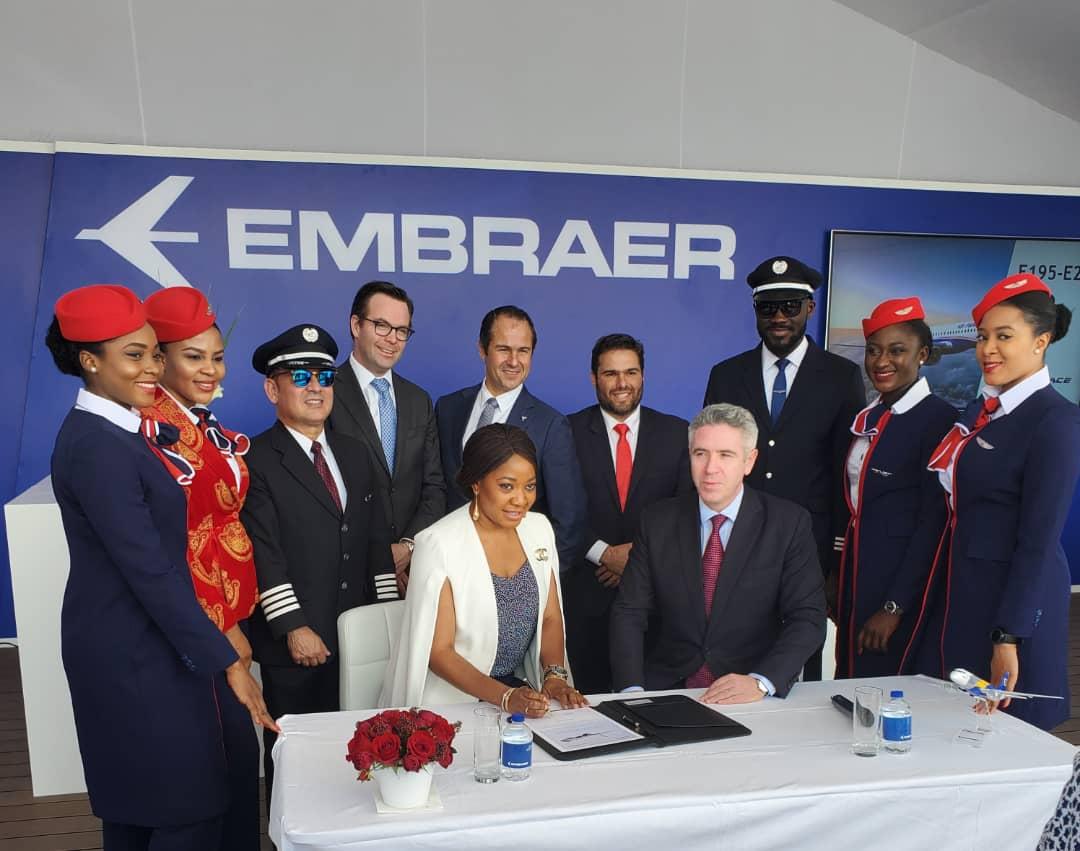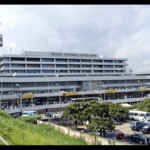
The coronavirus pandemic has had a deleterious effect on the finances of businesses, households and governments. This is because beyond the pandemic, which paralysed businesses and social activities, so much money is being spent by individuals and organisations to prevent the spread of the virus.
One of the most affected sectors is the aviation industry, where scheduled passenger service was stopped in March till date. While aircraft fleet is in storage during this period, money is still being spent for their maintenance so that there won’t be corrosion or other kinds of damages.
Also huge resources are being spent by airlines to meet COVID-19 preventive protocols on personal protection equipment (PPE), face masks, sanitisers, chemicals for flitting the aircraft regularly and training of personnel, including aircraft crew and others on how to manage boarding passengers and also in the aircraft cabin while onboard.
Even if airlines secure bailout funds from government, they would still need loans from banks to sustain their business.
Industry insiders have noted that guidelines and rules of engagement have been released; that the new normal is hand washing and sanitizers, wearing facemask, maintain social distancing and others.
They are of the view that aviation is tinkering with ideas like; aircraft should not be operated with more than 50 per cent to 70 per cent passenger load, noting that this would in turn cause the airline to rejig the breakeven passenger load per route and may even involve the maintenance and safety status as regards to the seating arrangement, the removal of seats, aircraft weight and balance may also be affected because of the COVID-19 situation, but it may not be the most suitable option for the aviation industry, but whatever is agreed on will still need huge resources to implement and airlines will need funds to implement them.
Inclusive Operation
Industry stakeholder and Lead Consultant, Etimfri Group, Amos Akpan, said there was the need to include all relevant sectors in the plan to restart flight service, including financial institutions. He noted that prominence has been rightly given to the government’s regulatory and service providing agencies and that some attention has been given to the domestic airlines as much as such helps the image of the government.
“In this regard, the best is the Civil Aviation Act 2006 and the positive consequences which include the ability of Civil Aviation Authority to ensure compliance with safety standards and regulate the operators within the specific procedures.
“Indeed our safety records have improved. The same progress is made with training under the Nigerian College of Aviation Technology (NCAT) and accident investigations on advisory reports under Accident Investigation Bureau (AIB). It is time we bring in other businesses in the industry as we plan to use this opportunity to restart the industry,” Akpan said.

Financial Institutions
Akpan observed that there was need to have financial desks or financial institutions with financially skilled personnel on aviation and lamented the current situation where potential business capacities in the industry are not developed because of lack of interest or knowledge by financial investment institutions on aviation.
“The capacity to monitor performance is lacking because the investors/fund managers are not equipped with the accurate indicators to detect deviation or non-compliance. Whatever we plan to do with are aviation sector, finance is critical to its successful implementation.
“We need institutions with desks that understand the rationale for investment in, for example, coaches between the airports and the surrounding cities; institutions that would understand investment on maintenance (MRO); investments on specialised storage facilities within the airports, investment on training of technicians and building of small technical companies that build tyres and aircraft handling equipment, aircraft seat covers, catering utilities and aircraft brake.
“The investment funds are available but they need to be attracted into aviation. What will attract them? Inclusive discourse to share information. Training of aviation managers on financial accountability and reporting.
“There is no explanation as to why a financial institution has not spearheaded the clearing system in Nigeria where passenger tickets and cargo waybills are not paid into the final carriers account. This way, we can fly Aero contractors to Abuja from Lagos with a ticket issued by Dana Air.
“Also Aero can repair a fault in an aircraft admitted into Arik’s hangar and get paid even though the maintenance was originally contracted between the aircraft owner and Arik. Of course, this would imply that the maintenance category falls under the same approval for the AMO (Approved Maintenance Organisation) by the Directorate of Airworthiness and Standards of the Nigerian Civil Aviation Authority (NCAA).
Airline’s Financial Needs

Some stakeholders believe that a percentage of the general cargo currently moved by road in Nigeria should be airfreighted. Akpan is of the view that as logical as this sound, it should be placed in a business module.
“The investment funders would like to see how this works within a business platform. It needs to be financed and this implies that the cargo investment portfolio has to be analysed by a financially skilled person that has knowledge of cargo agency and the economics of metric ton per kilometers/cubic volume of cargo of available cargo space in the aircraft. If you fund it blindly, you will discover too late that the pricing of cargo has a ceiling and the breakeven load per flight differs per aircraft type.
“The importance of proper placement of finance is more pronounced in aircraft fleeting planning. The type of aircraft you deploy on a route is important. The reason is because if your aircraft type cost you N2 million to operate from Lagos to Abuja, you cannot be in business carrying a payload that earns you N1 million.
“This is bad when there are other aircraft types that would cost you N800, 000 to operate the same Lagos to Abuja flight with the same income of N1 million. If the financial institutions had this knowledge, they would not give the airline management the loan to purchase or lease the aircraft type that is not economically suitable for the operations.
“This has been a major problem with the Nigerian airlines and their bankers – wrong choice of equipment for their business module causes misapplication of investment funds,” he said.
Industry analysts have noted that financial management and fiscal discipline have also been an issue in airline business. They observed, for example, that the bank manager and the airline manager agree hypothetically to reserve funds from current income of the operations for planned and unplanned maintenance, but when the airline experiences a sales boom due to favorable income profile for the traveling public, and the management goes on unplanned expansion which incurs expenses and liabilities outside the airline’ budget, the effect of this indiscipline is noticed when the planned maintenance is due and the cost is not met as estimated, the banker would now have to give more loans to the airline to get the aircraft out of maintenance back into operation and the cycle of loan continues. This leads to overtrading, they noted.
Economic Regulation by NCAA
Akpan explained that the monitoring unit of NCAA issues a form that airlines fill. The form seeks to obtain information that should help NCAA determine whether an airline is financially able to sustain operations; a form of economic viability test format within a period, “unfortunately, the form as designed cannot solve the problem it seeks to achieve. The airline fills in that form as provided for the quantity of fuel lifted and the amount paid in the previous month, for example fuel lifted in January 2020, while the form is filled in July 2020. The information input reflects the financial status of the airline for January not July.”
“Note that the fuel is not paid for when it is lifted; same goes for other supplies that constitute the key components in the cost of flight operations. If we cannot capture those cost items in real time, we are not properly situating them to determine the economic health of an airline. “By this method, the inability for the income to meet the cost will be established several months when the suppliers would have applied sanctions against excess credit limits.
“This applies to fuel, handling companies, staff salaries, and spare parts suppliers. The NCAA need to redesign the form to enable on time detection of the signs of financial insolvency. On time detection would enable timely intervention and application of corrective measures.”
THISDAY investigation revealed that so many portions of the Nigerian aviation are waiting to be exploited and the entrepreneurs are ready but investment funds are not ready.
The limitation has been the focus on government funds. The airlines have been privately owned and funded since the late 1980’s. The banks and the airline owners were making profit until the essence of knowing the dynamics of the industry became obvious with time.
The practice has been that the bank releases funds to lease or buy aircraft and gives working capital to the airline. In return the sales from cargo and passenger are taken in by the bank. Both parties get high volume of liquid money daily from sales.
Akpan noted that under this situation, airlines would require injection of funds for aircraft maintenance, the training and the fuel requests and these demands huge sums of money. When paid the airlines account would require re injection of funds with supplementary loan or commercial paper. This starts the cycle of overtrading by the airline’s management that would eventually crystalize into insolvency or bankruptcy.
“The banker needed to know the difference in fuel consumed by B737-300 and a CRJ900 per hour and its impact on the economy of the routes operated. The financial sector needs to invest in knowing about aviation so they can fund it and reap the benefits, which are enormous,” Akpan added.
So for airlines to secure appropriate funding from the financial institutions, there should be proper understanding of the peculiarities of airline business to ascertain its nature of funding and there should also be transparent accounting by the airlines to build trust between them and the financial organisations.






